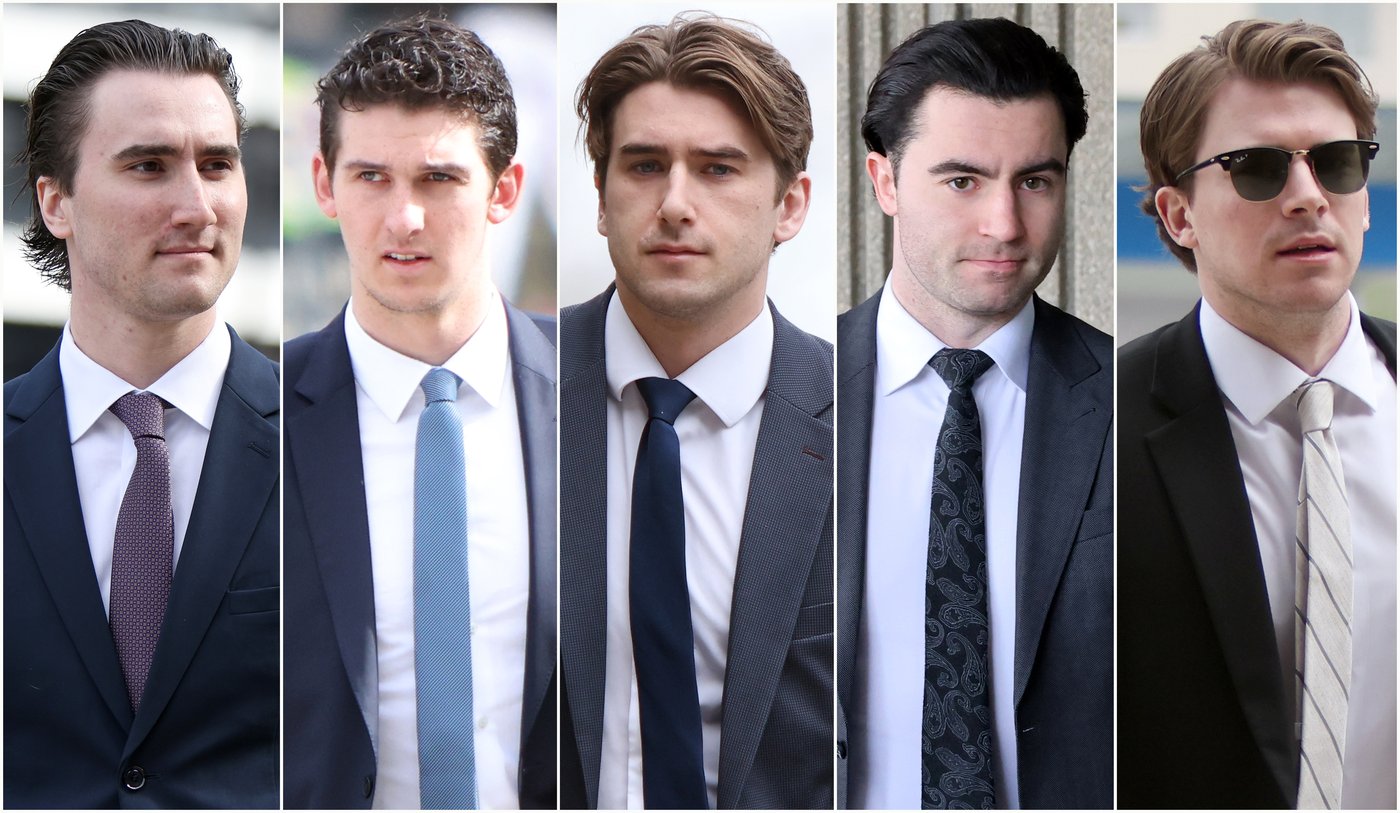The Hockey Canada sexual assault trial involving five former members of the 2018 world junior hockey team has reached a pivotal stage as of May 26, 2025. The ongoing case, centered on allegations made by a woman identified as E.M. about an incident in a London, Ontario hotel room in 2018, has faced multiple procedural challenges, including a mistrial and the dismissal of the jury over concerns of bias. Presided over solely by Justice Maria Carroccia, the trial continues amid heightened public scrutiny, reflecting broader concerns about the culture within Canadian ice hockey.
Background and Allegations
The case involves five former members of the 2018 Canadian world junior hockey team who are accused of sexual assault. The allegations stem from an incident that allegedly took place in 2018 at a hotel room in London, Ontario. The complainant, identified only as E.M. to protect her privacy, has detailed her accusations against the players, asserting that she was sexually assaulted during the event. This case has drawn significant national attention, highlighting ongoing concerns about misconduct and accountability in Canadian ice hockey circles.
Procedural Developments
Since the trial began, it has experienced several procedural obstacles. One notable development was the declaration of a mistrial earlier due to procedural errors. More recently, the jury assigned to the case was dismissed over concerns relating to potential bias, which threatened the impartiality of the proceedings.
Following the jury dismissal, Justice Maria Carroccia opted to continue the trial with judge-only proceedings. This decision aims to ensure a fair trial process and mitigate further complications tied to jury dynamics. The shift to a bench trial underscores the judiciary’s commitment to addressing bias concerns and upholding judicial integrity in sensitive cases.
Public and Legal Implications
The trial has intensified public discourse about the culture within Canadian ice hockey, especially at elite levels. Advocates for victims’ rights and critics of hockey culture argue that the case exemplifies broader systemic issues regarding how the sport manages allegations of sexual misconduct.
Legal experts note that the case could set important precedents related to how sexual assault allegations are adjudicated in high-profile sports settings. The decision to proceed without a jury is relatively uncommon in Canada and may influence future approaches to trials where potential juror bias is a concern.
Next Steps in the Trial
Justice Carroccia is expected to continue to hear evidence and testimonies directly without the involvement of a jury. Observers anticipate that the proceedings will move forward cautiously, balancing the rights of the accused with the need for transparent and thorough judicial examination.
The court has not announced a timeline for when a verdict might be reached. Updates will follow as the case progresses, reflecting the evolving nature of the trial and its potential repercussions for all parties involved.
Conclusion
The Hockey Canada sexual assault trial involving former members of the 2018 world junior hockey team remains a critical legal and social issue in Canada. With the trial now proceeding under the exclusive oversight of Justice Maria Carroccia, following challenges such as a mistrial and jury dismissal, the case highlights the complexities of ensuring fairness and impartiality in high-profile sexual assault allegations. Beyond the courtroom, the trial continues to fuel important discussions about the culture in Canadian hockey and the mechanisms for addressing misconduct within the sport. As proceedings advance, the outcomes could have significant implications for the handling of similar cases in the future, underscoring the ongoing need to balance justice, transparency, and the rights of all parties involved.

